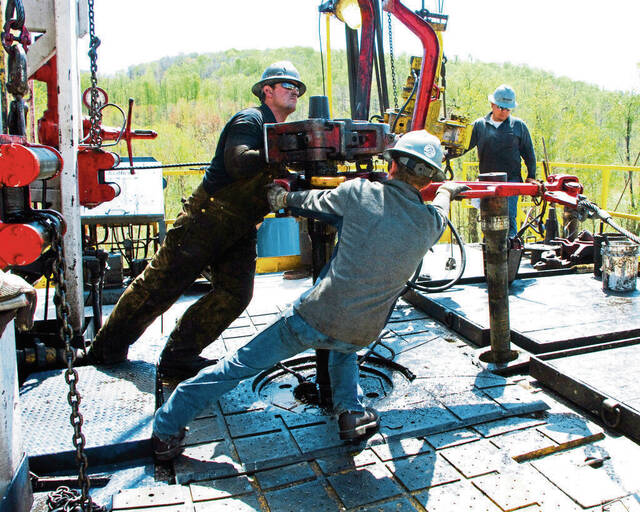An area environmental organization sees Pennsylvania’s new requirement that natural gas drillers reveal the chemicals in fracking fluids earlier in the drilling process as “long overdue.”
A trade group says the industry has been transparent about what it pumps into the ground.
”This gives people a chance to know what is being used near their homes, schools and playgrounds,” said Stacey Magda, managing community organizer for the Mountain Watershed Association, an environmental organization based in Melcroft.
The details of which chemicals an operator is using are contained in companies’ site-specific preparedness plan drillers submit to the Department of Environmental Protection. Previously, that information was available only upon request, the state said.
But, the natural gas industry already “largely follows (the) existing practice” of submitting that information sought by the DEP, said David Callahan, president of the Marcellus Shale Coalition, a trade group in Robinson representing the natural gas industry.
The new policies that will cover all gas companies are the result of a collaboration with CNX Resources Corp., which is based near Canonsburg, the state said. CNX Resources has disclosed the chemicals and additives used in its new drilling operations and has begun posting air monitoring results in real time for two of its well pads, with plans to expand the program across its operations statewide, the state said.
The requirements are following a key recommendation of a statewide grand jury report that Gov. Josh Shapiro oversaw while serving as state attorney general, the state said.
That grand jury report, however, was flawed in stating there was a cover-up by companies in disclosing the chemicals, Callahan said.
The operators have always “valued the importance of transparency regarding their operations,” both to the regulators and communities where they operated. Pennsylvania is one of the first states to achieve that transparency through plans routinely uploaded to the DEP’s Greenport data website as part of previously mandated emergency response, Callahan stated.
Callahan’s claim of industry transparency, Magda said, was counter to what the Mountain Watershed has found when companies blocked its efforts to learn what chemicals and additives are used in the fracking process on the grounds the composition of the fluids was a trade secret.
Drillers have held on to that stance, even though the chemicals have the potential to negatively impact the environment and people’s health, Magda said. By the time the Mountain Watershed is able to obtain information on the chemicals, “it’s long after that fact” from when that fracking occurred, Magda said.
CNX will provide DEP with unprecedented access to two future CNX well sites, allowing for in-depth, independent monitoring of the air emissions at both locations before, during and after development of the new wells, the state said.
That initiative will make it possible for communities to understand the facts about natural gas development with more transparency, the state said.
This story was updated Feb. 7 to correct the location of the Marcellus Shale Coalition.








